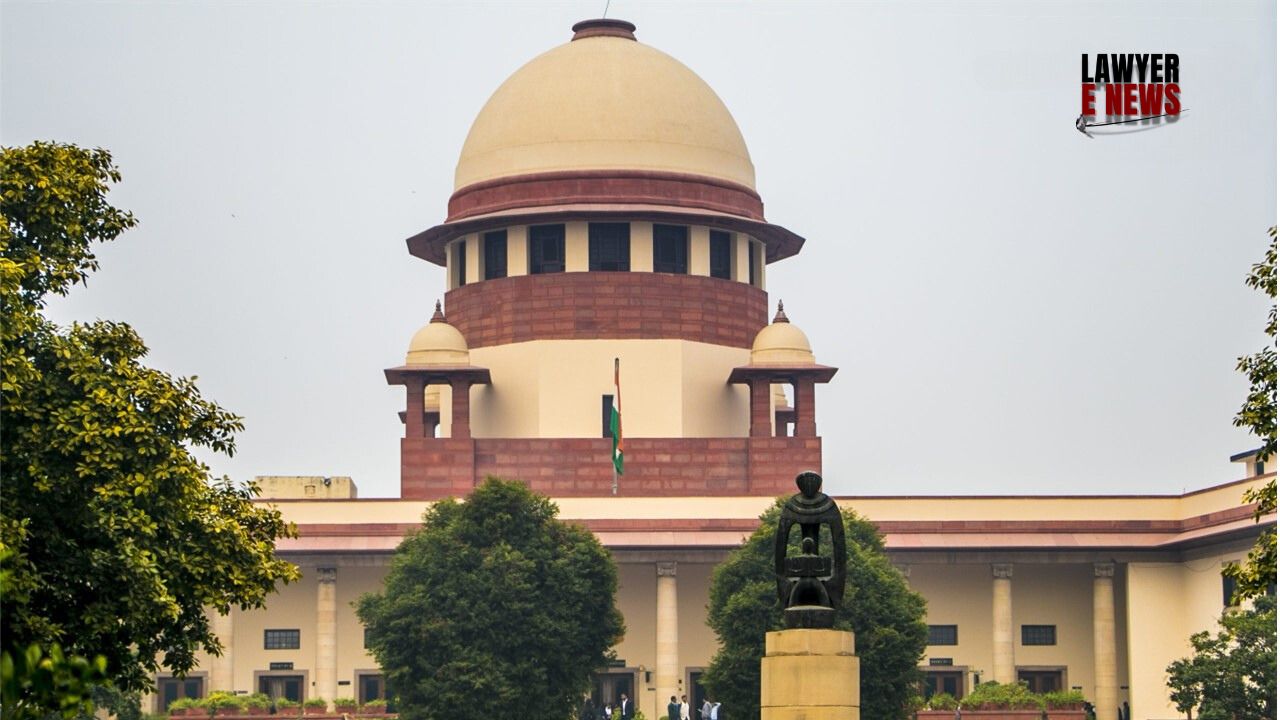-
by Admin
15 February 2026 5:35 AM



High Court’s ruling overturned, emphasizes the legitimacy of initial sale deed despite delayed registration . The Supreme Court has reinstated the ownership rights of the appellants in a protracted land dispute, overturning the High Court’s decision and affirming the validity of an initial sale deed despite a 26-year delay in its registration. The judgment delivered by Justices Vikram Nath and Ahsanuddin Amanullah underscores the importance of the initial sale transaction and the inherent rights it conferred upon the appellants.
The case involved a dispute over a piece of land measuring 1.70 hectares in Shelwali village, Tehsil Palghar, District Thane, Maharashtra. The land was initially sold to the appellants, Kaushik Premkumar Mishra and his minor brother, by the respondent, Kanji Ravaria, on December 2, 1985. The sale deed was executed but not registered due to a deficiency in stamp duty. Despite this, the appellants were put in possession of the land. The remaining half of the land was sold to their collaterals, Param Umakant Mishra and Sohardha Jagdish Mishra, and duly registered.
Years later, on December 3, 2010, the respondent sold the same piece of land to another party, leading to a suit filed by the appellants for cancellation of this subsequent sale deed. The trial court initially dismissed the appellants’ suit, but the decision was overturned by the District Judge in 2019. The High Court, however, reversed the District Judge’s ruling, reinstating the trial court’s decision. The Supreme Court’s recent judgment sets aside the High Court’s order and reaffirms the appellants’ ownership.
The Supreme Court highlighted that the initial sale deed executed on December 2, 1985, was valid and conveyed the property rights to the appellants despite the delayed registration. The court noted that “a registered document carries with it the presumption of correctness unless proved otherwise.” The delay in registration did not negate the legal transfer of ownership, especially since the deficiency in stamp duty was eventually rectified.
The court criticized the respondent’s conduct, noting that he did not specifically deny executing the sale deed nor receiving the sale consideration in his written statement. The respondent’s failure to enter the witness box or present evidence further weakened his case. “The defendant no.1 was deliberately and mischievously avoiding to make specific statements either denying his signatures on the sale deed or his presentation before the Sub-Registrar,” the court observed.
The Supreme Court discussed the principles of evaluating ownership and registration of sale deeds. It emphasized that once a sale deed is executed and presented for registration, it is presumed to be valid. The delayed registration does not invalidate the transaction. The court further clarified that the burden of proving any illegality in the registration process lies with the defendants, which they failed to do.
Justice Vikram Nath remarked, “The law comes to the aid of the weak. While adjudicating such cases, it is not just the lives and the properties of the people that we are dealing with, but also their trust in the legal system. Justice knows no bias and thus, through its aid, even the weak may prevail over the strong.”
The Supreme Court’s judgment reaffirms the importance of the initial sale deed and the rights it conferred upon the appellants. By setting aside the High Court’s ruling, the judgment sends a strong message about the sanctity of initial transactions and the legal protections afforded to rightful owners. This decision is expected to have significant implications for similar cases, ensuring that justice prevails over technicalities.
Date of Decision: July 19, 2024
Kaushik Premkumar Mishra & Anr. Vs. Kanji Ravaria @ Kanji & Anr.
